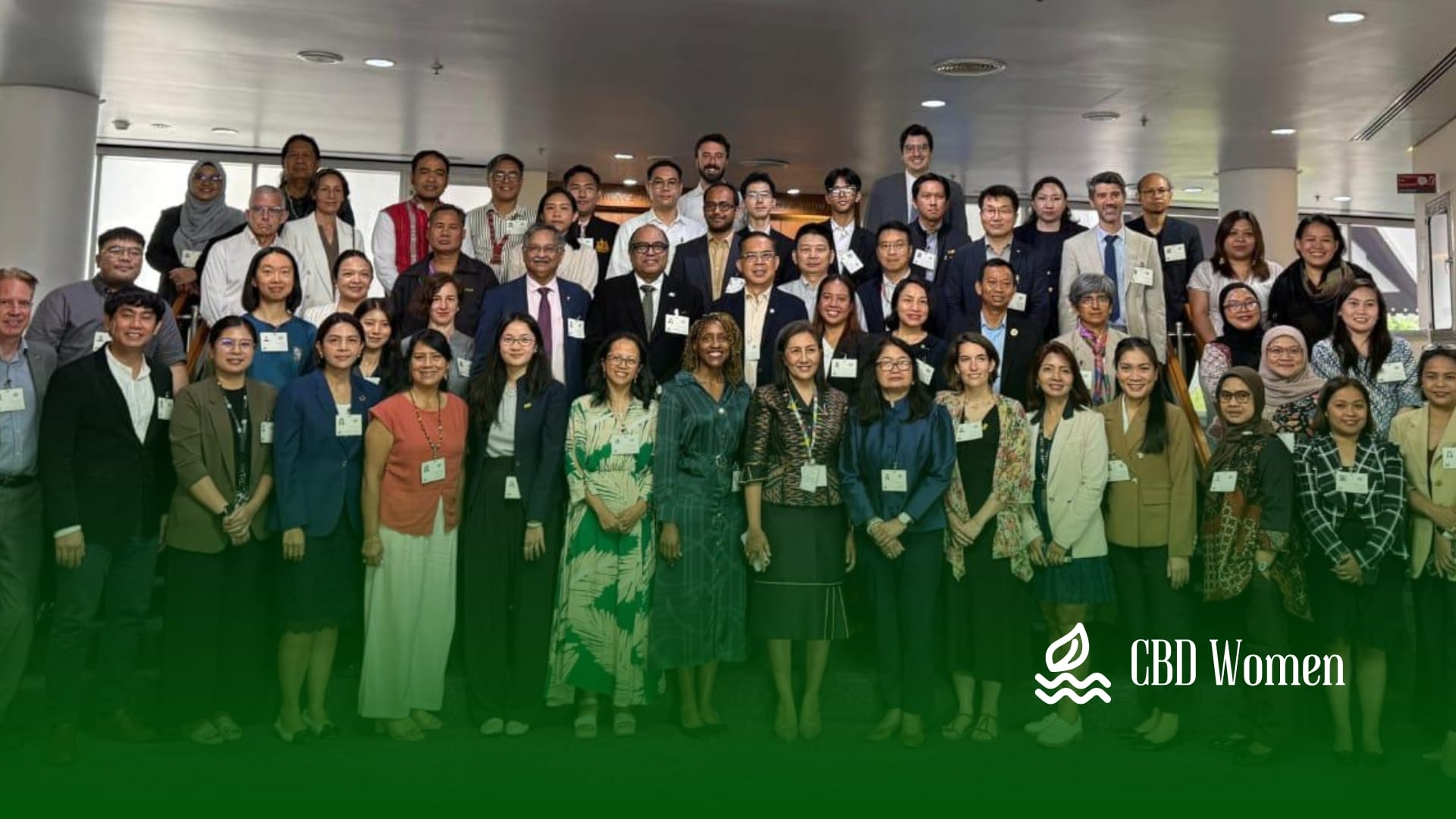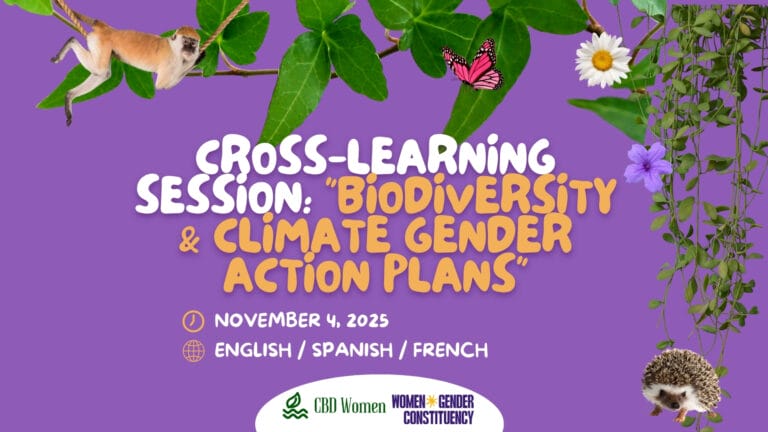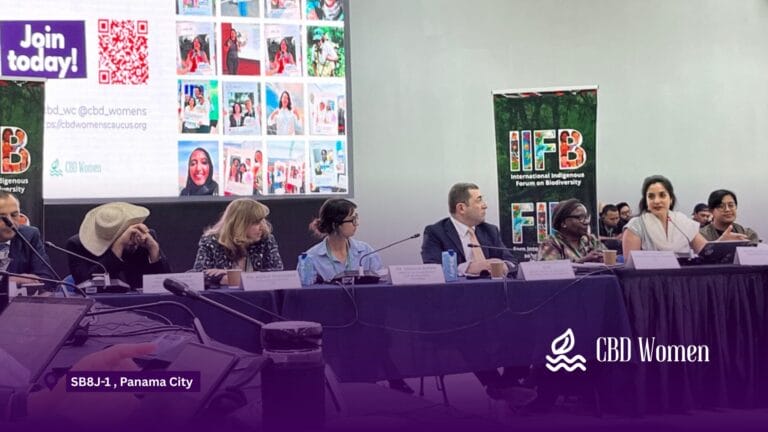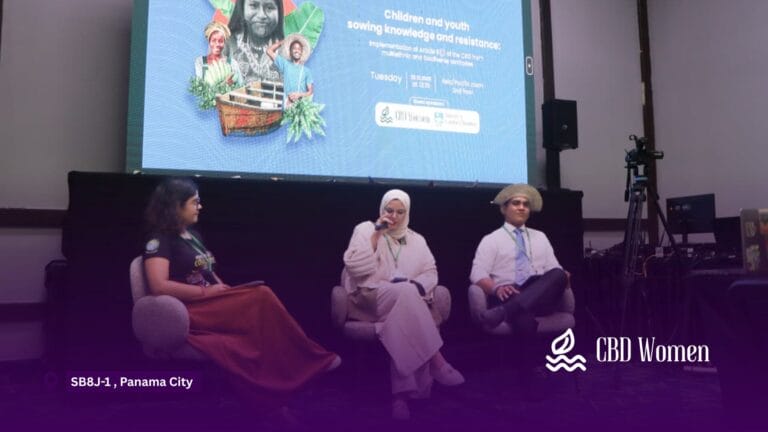By Ms. Doris Borna Mae H. Esteban, Coordinator of the Philippine Program at Tebtebba
Let's dive into what happened during the Subregional Capacity-Building Workshop on Target 3 of the Kunming-Montreal Global Biodiversity Framework for East and Southeast Asia!
From 17 to 20 June 2025, approximately 50 participants took part in the Subregional Capacity-Building Workshop on Target 3 of the Kunming-Montreal Global Biodiversity Framework for East and Southeast Asia, held in Bangkok, Thailand. Among them were two representatives from the CBD Women’s Caucus: Ms. Doris Borna Mae Esteban from the Philippines and Ms. Pinsuda Namkaew from Thailand.
What Are the Key Takeaways from Day 1?
The opening day of the Subregional Capacity-Building Workshop on Target 3 of the Kunming-Montreal Global Biodiversity Framework (KMGBF) highlighted the centrality of Target 3, conserving 30% of land, waters, and seas as a cornerstone for achieving the Framework’s broader goals.
In the welcome remarks, a Thailand government official reaffirmed the host country’s commitment to the KMGBF, setting a tone of regional ambition. Later, Dr. Madhu Rao of the International Union for Conservation of Nature (IUCN) stressed the imbalance in current efforts, noting that only 1.44% of high seas are protected, and called for greater focus on marine conservation, localization, and increased domestic funding.
The CBD Secretariat emphasized the need to align national actions with KMGBF targets, describing protected and conserved areas (PCAs) as essential tools for both conservation and communication. In the afternoon, Vietnam, Malaysia, Japan, Indonesia, Cambodia, Brunei, Thailand, Korea, and the Lao People’s Democratic Republic shared updates on their protected and conserved areas strategies, many of which included plans for Other Effective Area-Based Conservation Measures (OECMs).
While the Secretariat acknowledged varying levels of OECM integration into policies and plans, Indigenous Peoples and Local Communities (IP and LCS) and CBD Women’s Caucus representatives raised a vital question on How are OECMs perceived by IPLCs who have long protected their territories? Their intervention emphasized the importance of recognizing IP and LCS and women as key actors in biodiversity governance.
Day 2 Highlights: Strengthening Management Effectiveness for Target 3
The second day of the Subregional Capacity-Building Workshop on Target 3 of the Kunming-Montreal Global Biodiversity Framework began with Dr. Rao delivering an insightful session on management effectiveness, a crucial component in achieving the 30×30 target. She emphasized that conservation outcomes must be both effective and inclusive, underlining the need for good governance and strong management systems in biodiversity areas. Dr. Rao also presented a range of complementary tools that can support biodiversity conservation when applied thoughtfully and in tandem.
However, participants raised important considerations that must be integrated into conservation strategies. These included:
- The need to contextualize efforts based on specific local realities
- The mainstreaming of gender perspectives
- Alignment with climate action
- The establishment of safeguards to address grievances and human rights concerns
During the evening session, the workshop delved deeper into the topic of OECMs. Presenters highlighted four key pillars for strengthening OECM implementation:
- Inclusivity
- Recognition and legal status
- Clarity around eligibility and land tenure
- Expertise and experience
Centering Women's Voices in Biodiversity Conservation
The presentation from the CBD Women’s Caucus, delivered by Ms. Esteban alongside Ms. Namkaew, emphasized the critical importance of obtaining consent and mainstreaming gender in conservation efforts. The speakers called for greater inclusion of women in environmental decision-making processes, highlighting their vital role in safeguarding biodiversity and promoting sustainable land and resource management. They stressed that women bring unique perspectives, knowledge systems, and lived experiences that are essential for effective conservation efforts.
Additionally, the CBD WC highlighted the urgent need to address historical and intersectional injustices faced by women, including women from Indigenous Peoples and local communities. This includes recognizing and upholding their rights to land, territories, and natural resources.
Final Reflections and Collective Recommendations
The training workshop concluded with a collective reflection on key recommendations to strengthen biodiversity efforts. These included:
- The need for contextualization and localization of actions.
- The inclusion of all sectors in decision-making, implementation, and monitoring.
- Leveraging existing biodiversity funds and ensuring their accessibility to all, including Indigenous Peoples, local communities, women, and youth;
- Ensuring free, prior, and informed consent in all decision-making processes;
- Establishing safeguards for all initiatives; and
- Recognizing, adopting, and institutionalizing effective existing efforts within broader conservation strategies.
Disclaimer: The views expressed in this blog are those of the author and do not necessarily reflect the official position or opinions of the CBD Women’s Caucus.




